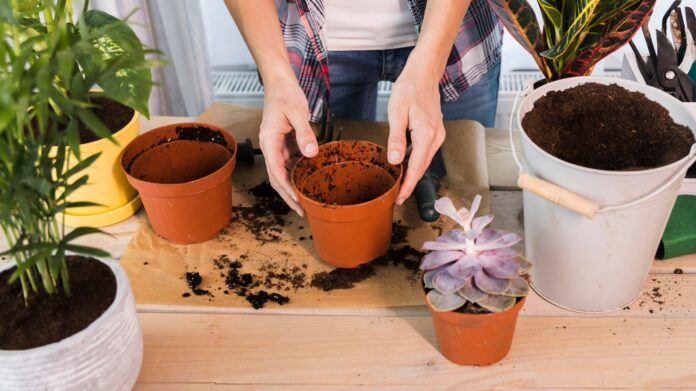Spending time outside is beneficial to our bodies and minds, according to research. You have undoubtedly benefited from these advantages.
Developing strong relationships with people, engaging in physical activity, practicing mindfulness, and picking up a creative pastime are all recommended as ways to improve our mental health and discover pleasure. However, did you know that developing a green thumb through gardening may also be crucial to obtaining and preserving happiness and mental health? There are, in fact, numerous advantages to gardening for mental health.
Gardening appears to be a national pastime in many nations, including Australia. Many adults think gardening is better for their mental health than going to the gym.
The historical roots of the relationship between people, nature, and mental health can be traced back to ancient Egypt, when mentally restless royals were advised to take walks in their gardens. In the end, during the 18th and 19th centuries, gardening was tested as a clinical remedy.
Around the same period, gardens and greenhouses were added to the rehabilitation centers of hospitals that treated World War II veterans because Benjamin Rush, one of the pioneers of modern psychology, felt that getting his hands dirty in the garden had a healing effect on his patients.
In the modern day, therapeutic horticulture is a widely accepted practice worldwide. There are accredited horticultural therapy gardens from Italy to Singapore that provide people of all ages and backgrounds with the mental health advantages of horticulture.
6 benefits of gardening for mental health
It’s evident that gardening as a mental health practice is more than a fad. Getting involved with plants is a great way to release tension and escape the stresses of daily life, but there are also other significant advantages that you won’t want to pass up. These are seven ways that horticultural therapy and gardening might support you if you’re experiencing anxiety, poor energy, or loneliness.
#1 – Relieving stress
Stress relief is one of the key advantages of gardening for mental health. When researchers looked into the Japanese practice of wandering through forests, known as “forest bathing,” they discovered this calming effect.
Gardening is a pleasant diversion from our lives increasingly dominated by technology. A study comparing participants’ responses to two tasks—computer work and transplanting—found that there were notable mood changes.
Participants reported feeling less stressed during the planting process than they did while using a computer. Additionally, after time in the garden, participants’ blood pressure dropped, which suggests gardening has a physiological foundation for its stress-relieving effects.
#2 – Grounding
Since gardening allows us to rediscover our humanity, it promotes a sense of grounding. Engaging in gardening can lead to a greater sense of connection and belonging for those who do it. This is no minor accomplishment when you consider how ignorant most people are about something as fundamental as where their food comes from.
However, gardening, even if you’re ‘just’ cultivating herbs, grounds you in the importance of producing your own food. The social realm is likewise impacted by this sense of anchoring. You can meet people who share your hobbies and improve your relationships with others by taking up gardening. You can meet people who share your interests by going to your local urban garden or park areas.
#3 – Mindfulness and staying in the present
There are several advantages to practicing mindfulness in the present moment, including lessening stress and rumination. Gardening provides an opportunity to practice mindfulness because it requires focus and attention to detail. You can also take some time to appreciate the beauty that surrounds you.
In fact, many gardening-related jobs, like digging, trimming, and weeding, require us to concentrate on the current work at hand, which increases our likelihood of staying in the now and putting our problems aside, even if only momentarily.
#4 – Having a sense of purpose
Gaining a sense of value and purpose from gardening is another advantage for mental health. This is what happens when you engage in hands-on activities directly and witness the fruits of your labor.
Selecting and caring for the plants, herbs, and flowers that bring you joy can give you a sense of pride and affirmation. Actually, research indicates that tending to plants increases our sense of nurturing and releases feel-good hormones like serotonin and dopamine.
#5 – Great for the body
It’s true that gardening and several forms of physical treatment need a lot of physical activity. Digging, weeding, and moving pots and bags are all beneficial exercises that can help you stay in shape. Even 30 minutes of these calorie-burning gardening tasks might help burn a lot of calories:
- Digging and shovelling: 250 calories
- Mowing the lawn: 195 calories
- Weeding: 105 calories
- Raking: 100 calories
Additionally, consistent exercise can improve your quality of sleep, which is another crucial component of being healthy.
#6 – Boosts Your Immune System
Just being outside and exposed to daylight and Vitamin D when gardening can help to bolster your immune system. Consequently, this strengthens resilience to chronic illness.
It has also been proposed that the debris you accumulate beneath your fingernails could potentially strengthen your immune system! Known to be ‘friendly’ soil bacteria, Mycobacterium vaccae is frequently found in garden soil and has been demonstrated to reduce psoriasis, asthma, and allergy symptoms. These conditions can all be brought on by compromised immune systems.
It has been demonstrated that Mycobacterium vaccae can also lower depression, so don’t be scared to get your hands dirty—you can swallow the bacteria or inhale it through your veggies.
To sum up, gardening is beneficial to our mental well-being.
The benefits of gardening for depression and anxiety have only been shown to include many great errects. This essay has demonstrated the potency of gardening as a natural antidepressant that may reset our bodies and minds.
Growing green thumbs is an inexpensive and accessible pastime. Whether you have a window sill, a balcony, or simply hanging space in your home, you may start gardening and experience an improvement in enjoyment and well-being!






























